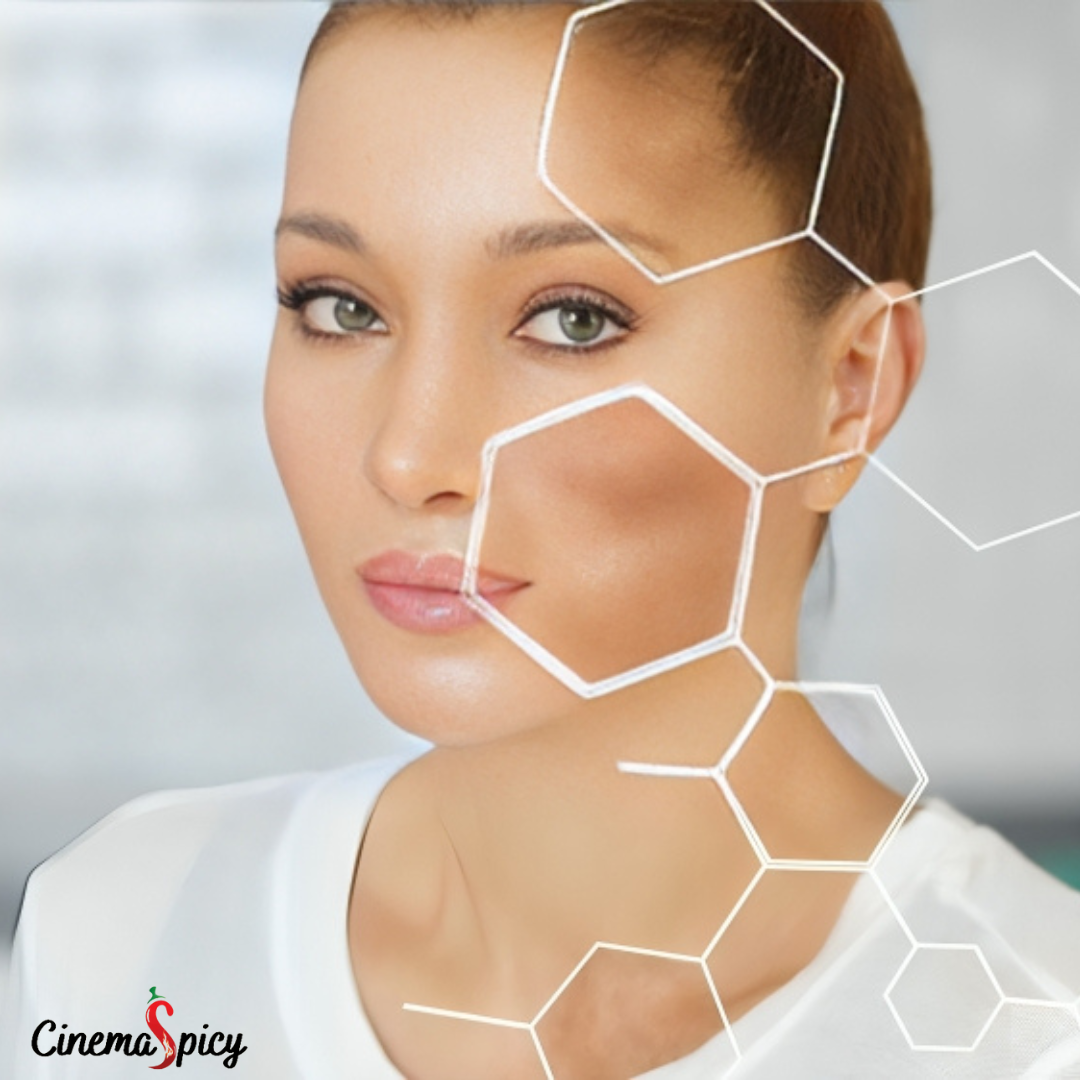Introduction
Importance of Skin Care
Daily Skin Care Routine for Glowing Skin Taking care of your skin is not just about aesthetics; it’s crucial for overall health. The skin is the largest organ of the body, acting as a barrier against environmental pollutants, harmful bacteria, and UV radiation.
Daily Skin Care Routine for Glowing Skin :
Proper skin care helps maintain this barrier and keeps your skin functioning optimally.
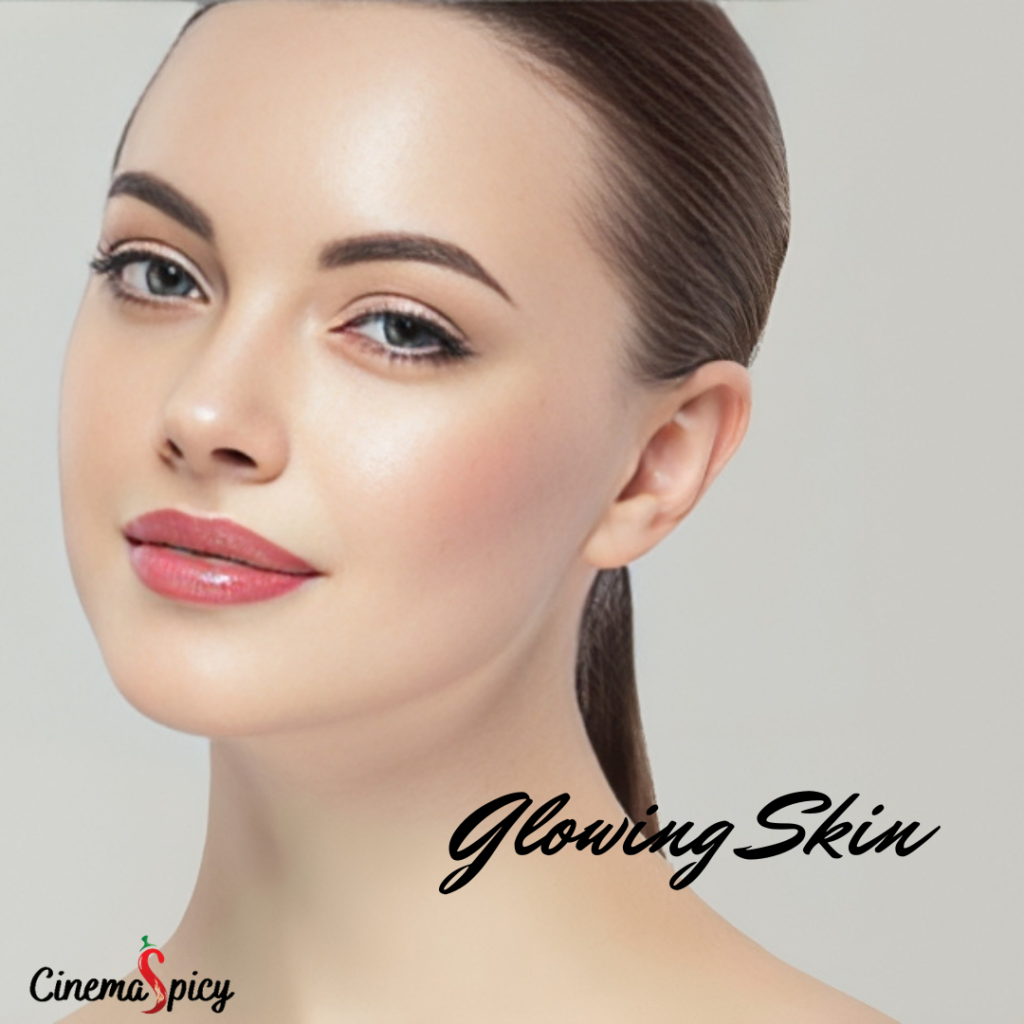
Benefits of a Daily Skin Care Routine
A consistent daily skin care routine can:
- Improve skin texture and appearance
- Prevent acne and breakouts
- Slow down signs of aging
- Enhance skin hydration
- Protect against environmental damage
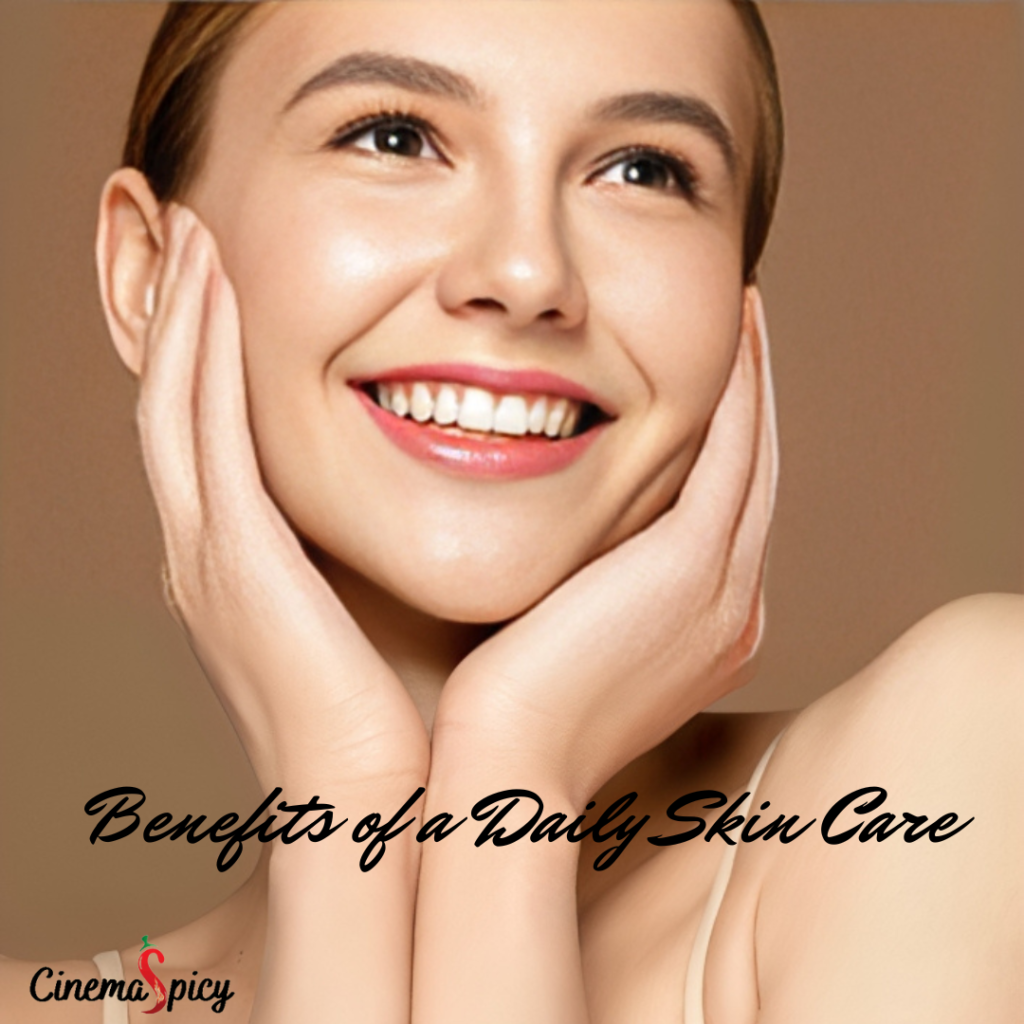
Overview of Skin Types
Understanding your skin type is the first step in creating an effective skin care routine. Skin types include:
- Normal: Balanced, not too oily or dry
- Oily: Excess sebum production, prone to acne
- Dry: Lacks moisture, often feels tight
- Combination Skin: Exhibits oiliness in certain areas, particularly the T-zone, while being dry in others.
- Sensitive Skin: Easily irritated and prone to redness and adverse reactions.
Understanding Your Skin
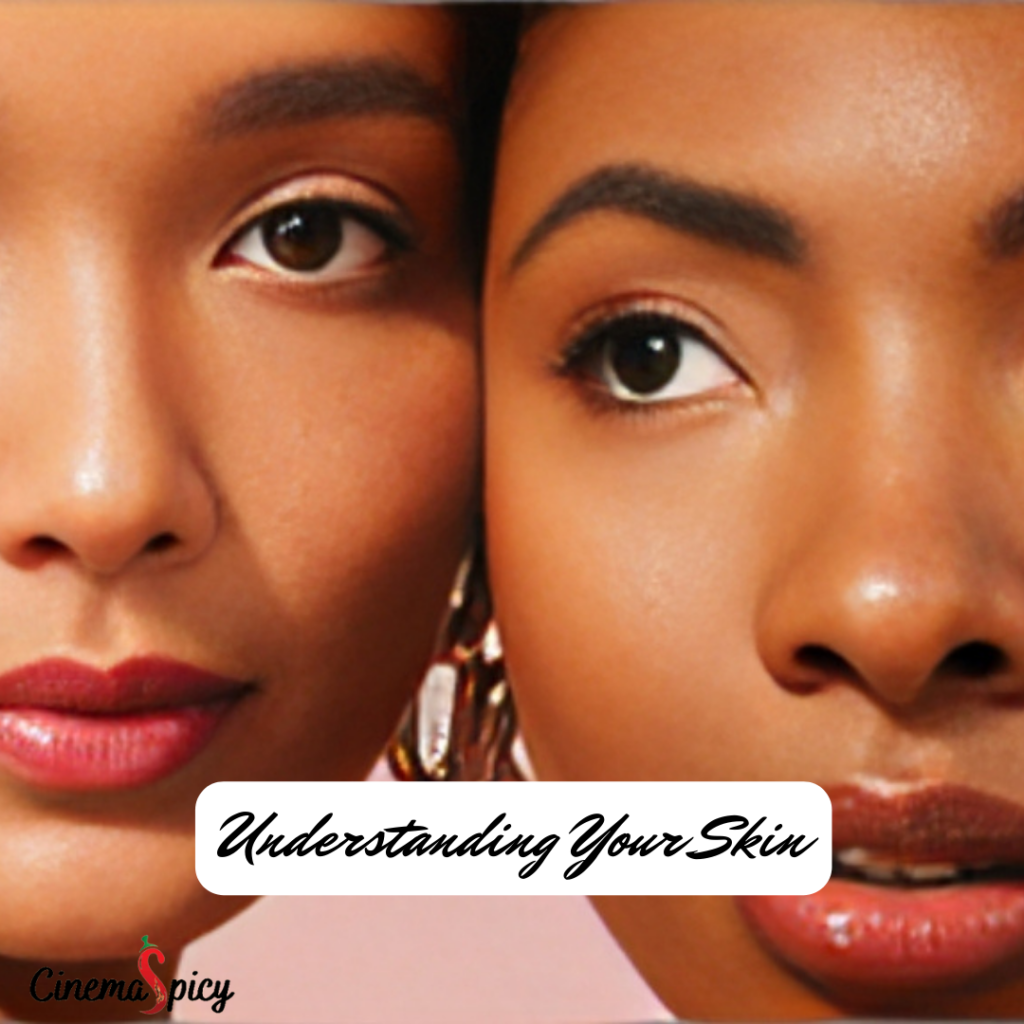
Identifying Your Skin Type
Normal Skin
Characteristics: Balanced moisture and oil levels, few imperfections.
Care Tips: Use gentle cleansers and moisturizers, regular exfoliation.
Oily Skin
Characteristics: Shiny appearance, large pores, prone to acne.
Care Tips: Use oil-free, non-comedogenic products, regular exfoliation.
Dry Skin
Characteristics: Flaky, rough texture, tight feeling.
Care Tips: Use hydrating cleansers and rich moisturizers, avoid hot water.
Combination Skin
Characteristics: Oily T-zone (forehead, nose, chin), dry cheeks.
Care Tips: Use products that balance oil and moisture, treat each area appropriately.
Sensitive Skin
Characteristics: Redness, irritation, prone to reactions.
Care Tips: Use hypoallergenic and fragrance-free products, test new products on a small area first.
Also Read : The Impact of Social Media on Mental Health: You Should Read
Also Read : “Signs of Bad Eyesight The Hidden Symptoms You Shouldn’t Ignore”
Common Skin Issues
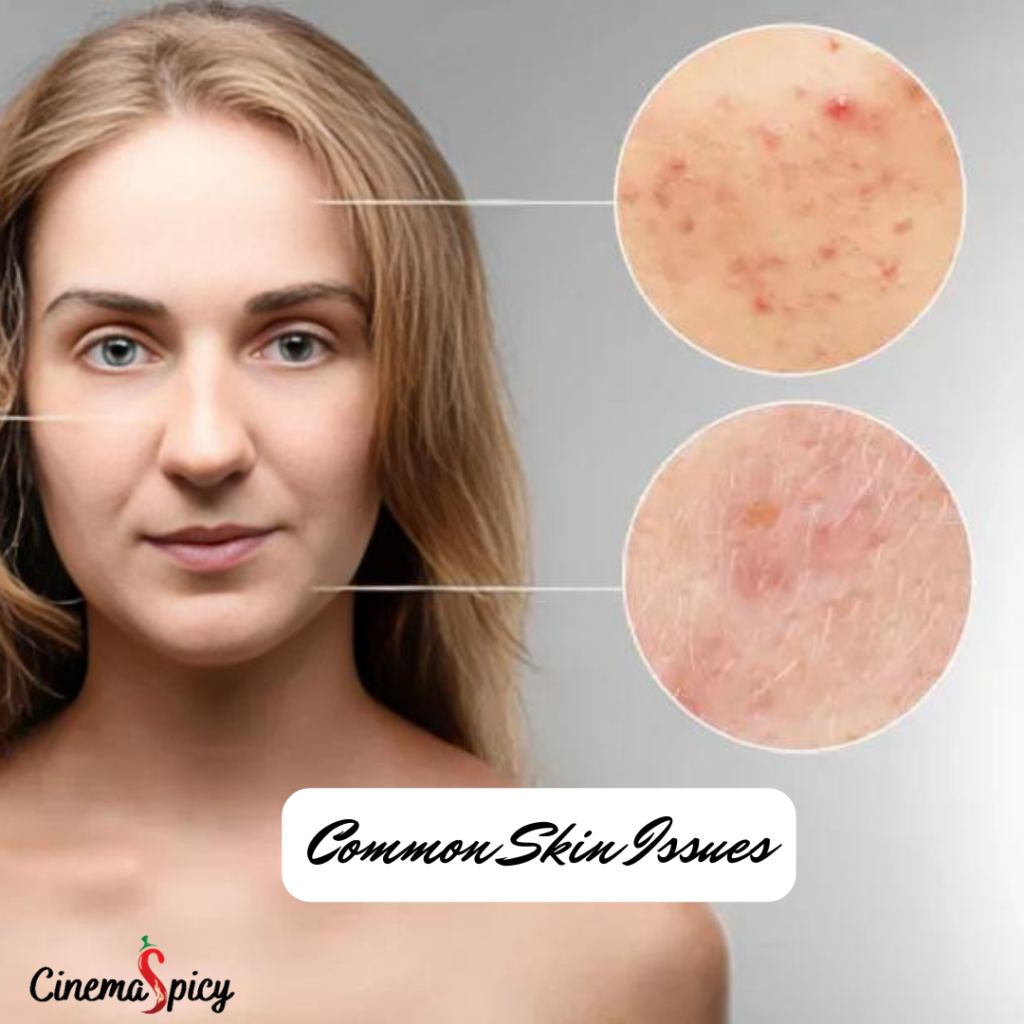
Acne
Causes: Hormonal changes, excess oil, clogged pores.
Treatment: Salicylic acid, benzoyl peroxide, non-comedogenic products.
Eczema
Causes: Genetic factors, environmental triggers.
Treatment: Moisturizers, corticosteroid creams, avoiding triggers.
Rosacea
Causes: Unknown, but can be triggered by hot drinks, spicy foods, stress.
Treatment: Gentle skin care products, avoiding triggers, prescribed medications.
Hyperpigmentation
Causes: Sun exposure, inflammation, hormonal changes.
Treatment: Sunscreen, vitamin C, hydroquinone.
Morning Skin Care Routine
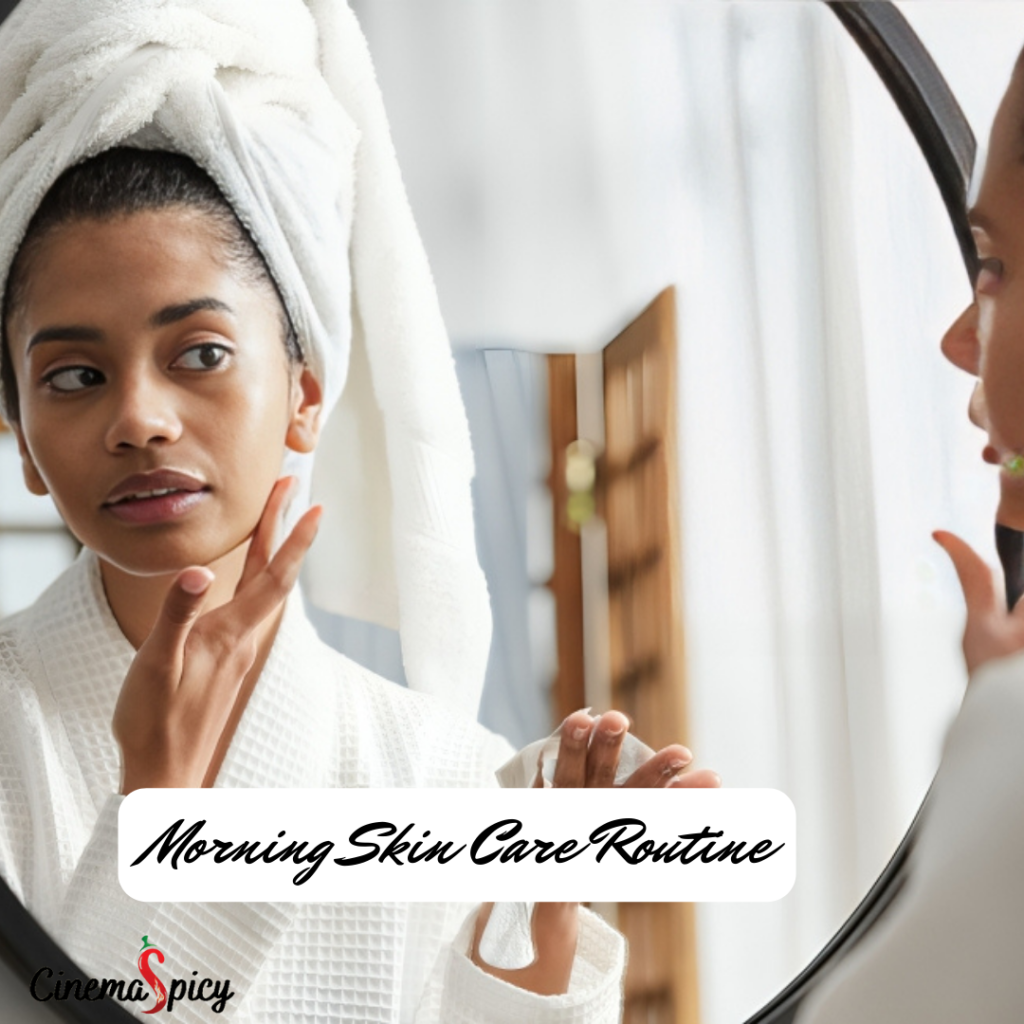
Step-by-Step Guide
Cleansing
Start your morning routine with a gentle cleanser to remove any overnight impurities.
Toning
Use a toner to balance your skin’s pH and prepare it for the next steps.
Moisturizing
Apply a moisturizer suitable for your skin type to keep your skin hydrated throughout the day.
Sunscreen
Conclude with a broad-spectrum sunscreen to shield your skin from harmful UV rays.
Recommended Products
Recommended Cleansers: CeraVe Hydrating Cleanser and La Roche-Posay Toleriane Hydrating Gentle Cleanser
Toners: Thayers Witch Hazel Toner, Paula’s Choice Enriched Calming Toner
Moisturizers: Neutrogena Hydro Boost Water Gel and CeraVe Moisturizing Cream
Sunscreens: EltaMD UV Clear Broad-Spectrum SPF 46, Neutrogena Ultra Sheer Dry-Touch Sunscreen SPF 100+
Tips for Each Skin Type
- Normal Skin: Use a balanced routine with gentle products.
- For Oily Skin: skin care routine for oily skin Choose oil-free and mattifying products.Dry Skin: Use rich, hydrating products.
- Combination Skin: Use different products for different areas of the face.
- Sensitive Skin: Use fragrance-free, hypoallergenic products.
Evening Skin Care Routine
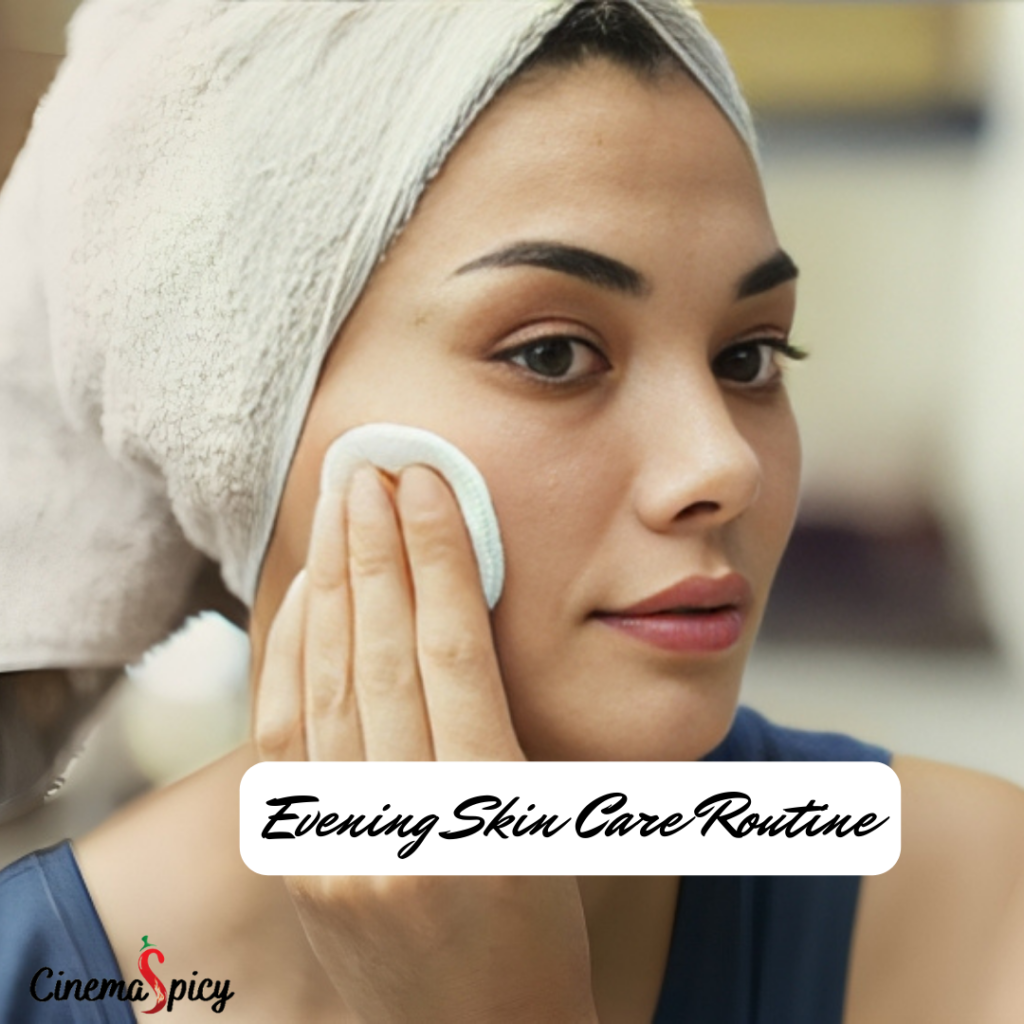
Importance of Night-Time Routine
Night-time is when your skin repairs and regenerates. A proper evening routine can enhance this natural process, leading to healthier, glowing skin.
Step-by-Step Guide
Makeup Removal
Use a gentle makeup remover to ensure all makeup is thoroughly removed.
Double Cleansing
Follow up with a second cleanser to remove any remaining impurities.
Exfoliation
Exfoliate to eliminate dead skin cells and encourage cell renewal.
Serums and Treatments
Apply serums and treatments that target specific skin concerns.
Moisturizing
Finish with a moisturizer to keep your skin hydrated overnight.
- Recommended Products
- Makeup Removers: Bioderma Sensibio H2O, Garnier SkinActive Micellar Cleansing Water
- Cleansers: Vanicream Gentle Facial Cleanser, KraveBeauty Matcha Hemp Hydrating Cleanser
- Exfoliants: The Ordinary Glycolic Acid 7% Toning Solution, Paula’s Choice Skin Perfecting 2% BHA Liquid
- Serums: The Ordinary Niacinamide 10% + Zinc 1%, Skinceuticals C E Ferulic
- Moisturizers: First Aid Beauty Ultra Repair Cream, Eucerin Advanced Repair Cream
Weekly Skin Care Practices
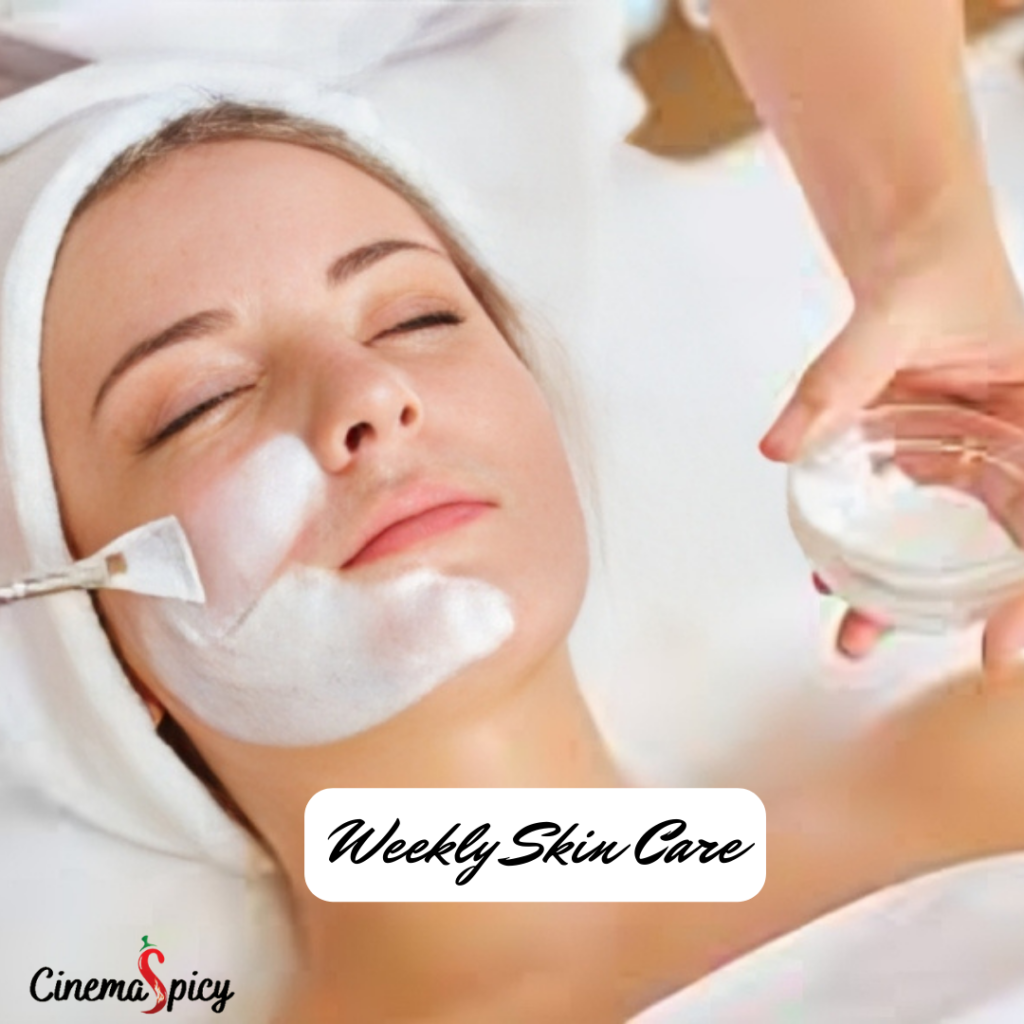
Importance of Exfoliation
Exfoliation helps remove dead skin cells, allowing new cells to surface, resulting in a brighter and smoother complexion.
Different Types of Exfoliants
Physical Exfoliants
Use small granules to manually remove dead skin cells.
Examples: St. Ives Fresh Skin Apricot Scrub, Dermalogica Daily Microfoliant
Chemical Exfoliants
Utilize acids or enzymes to break down dead skin cells.
Examples: Alpha-H Liquid Gold, Sunday Riley Good Genes
Benefits of Face Masks
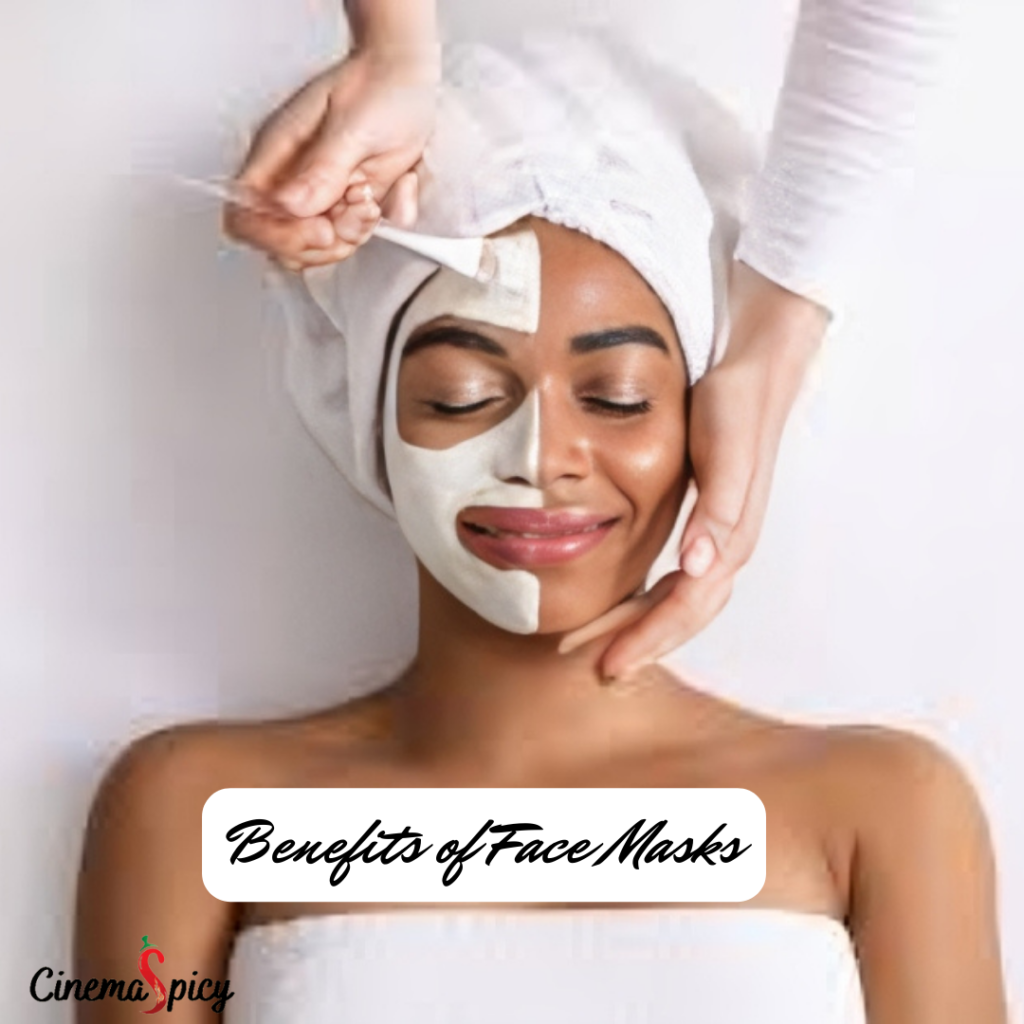
Hydrating Masks
Provide intense moisture.
Examples: Laneige Water Sleeping Mask, Dr. Jart+ Water Replenishment Cotton Sheet Mask
Clay Masks
Help absorb excess oil and unclog pores.
Examples: Aztec Secret Indian Healing Clay, Origins Clear Improvement Active Charcoal Mask
Sheet Masks
Enriched with serums to address specific skin concerns.
Examples: TonyMoly I’m Real Sheet Masks, Dr. Jart+ Dermask
Recommended Products
- Physical Exfoliants: Neutrogena Deep Clean Gentle Scrub, Tatcha The Rice Polish
- Chemical Exfoliants: The Ordinary AHA 30% + BHA 2% Peeling Solution, Drunk Elephant T.L.C. Sukari Babyfacial
- Hydrating Masks: Fresh Rose Face Mask, Peter Thomas Roth Cucumber Gel Mask
- Clay Masks: Glamglow Supermud Clearing Treatment, L’Oréal Paris Pure-Clay Mask
- Sheet Masks: Innisfree My Real Squeeze Mask, Mediheal N.M.F Intensive Hydrating Mask
Specialized Skin Care Treatments
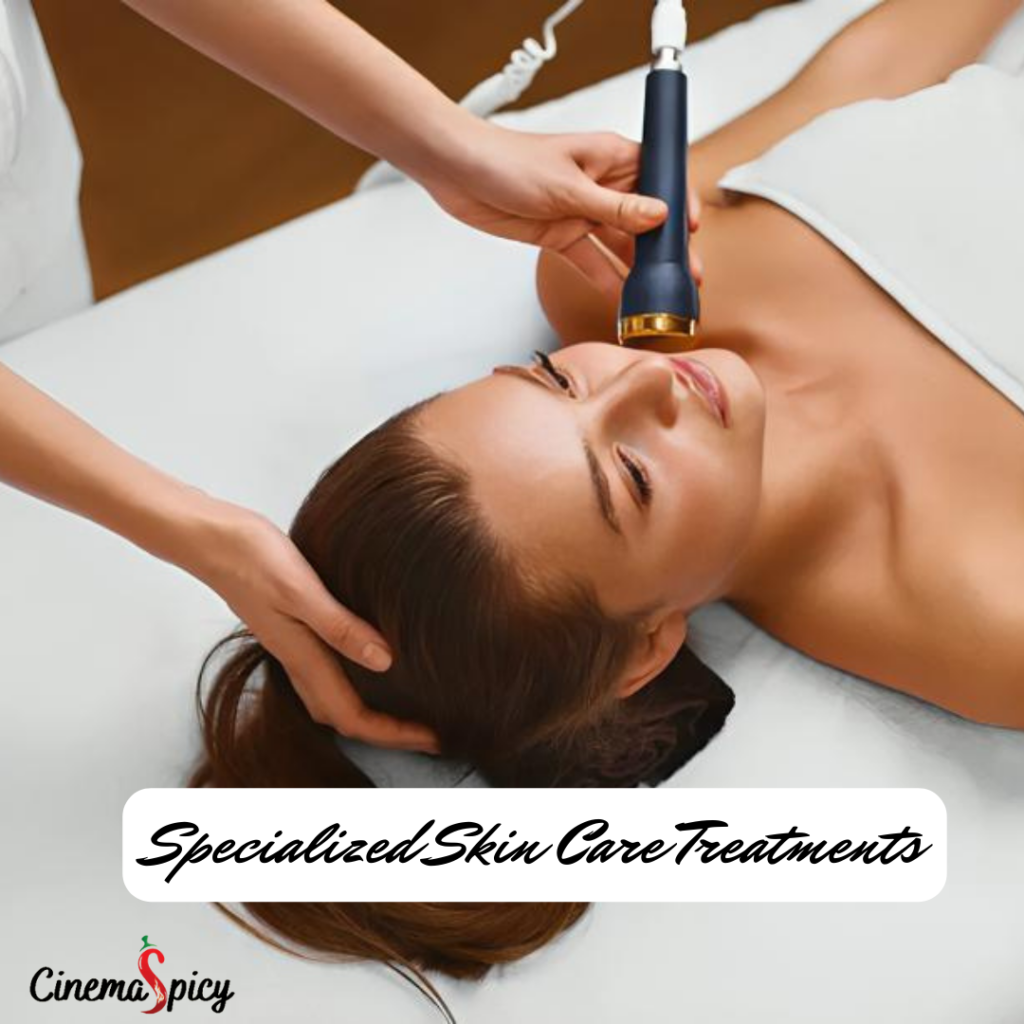
Anti-Aging Treatments
Retinoids
Stimulate collagen production and cell turnover.
Examples: Differin Gel, The Ordinary Retinol 1% in Squalane
Peptides
Help improve skin elasticity and firmness.
Examples:Products like The Ordinary Buffet and Drunk Elephant Protini Polypeptide Cream
Treatments for Acne-Prone Skin
Salicylic Acid
Unclogs pores and reduces inflammation.
Examples: Clean & Clear Advantage Acne Spot Treatment, Paula’s Choice Skin Perfecting 2% BHA Liquid
Benzoyl Peroxide
Kills acne-causing bacteria.
Examples: PanOxyl Acne Foaming Wash, La Roche-Posay Effaclar Duo
Treatments for Hyperpigmentation

Vitamin C
Brightens skin and reduces dark spots.
Examples: SkinCeuticals C E Ferulic, The Ordinary Ascorbic Acid 8% + Alpha Arbutin 2%
Hydroquinone
Lightens dark spots and hyperpigmentation.
Examples: Ambi Skincare Fade Cream, Murad Rapid Age Spot and Pigment Lightening Serum
Recommended Products
- Retinoids: RoC Retinol Correxion Deep Wrinkle Night Cream, The Ordinary Granactive Retinoid 2% Emulsion
- Peptides: Olay Regenerist Micro-Sculpting Cream, Matrixyl 3000
- Salicylic Acid: Neutrogena Oil-Free Acne Wash, Mario Badescu Acne Facial Cleanser
- Benzoyl Peroxide: Neutrogena Rapid Clear Stubborn Acne Cleanser, Paula’s Choice Clear Regular Strength Daily Skin Clearing Treatment
- Vitamin C: TruSkin Vitamin C Serum, Kiehl’s Powerful-Strength Line-Reducing Concentrate
- Hydroquinone: Paula’s Choice Resist Triple-Action Dark Spot Eraser
Lifestyle Tips for Healthy Skin

Importance of Hydration
Drinking water to keeps your skin hydrated and helps to flush out toxins.
Diet and Skin Health
Foods for Healthy Skin
Omega-3 fatty acids: Salmon, walnuts
Antioxidants: Berries, dark chocolate
Vitamins: Leafy greens, citrus fruits
Foods to Avoid
Sugar: Can cause inflammation and breakouts
Dairy: May trigger acne in some people
Processed foods: Often contain unhealthy foods like fats and sugars
Importance of Sleep
Getting enough sleep allows your skin to repair and regenerate, reducing signs of aging and improving overall skin health.
Managing Stress
Persistent stress can contribute to skin problems such as acne and eczema. Engage in stress-relieving activities such as yoga and exercise.
Natural Skin Care Options
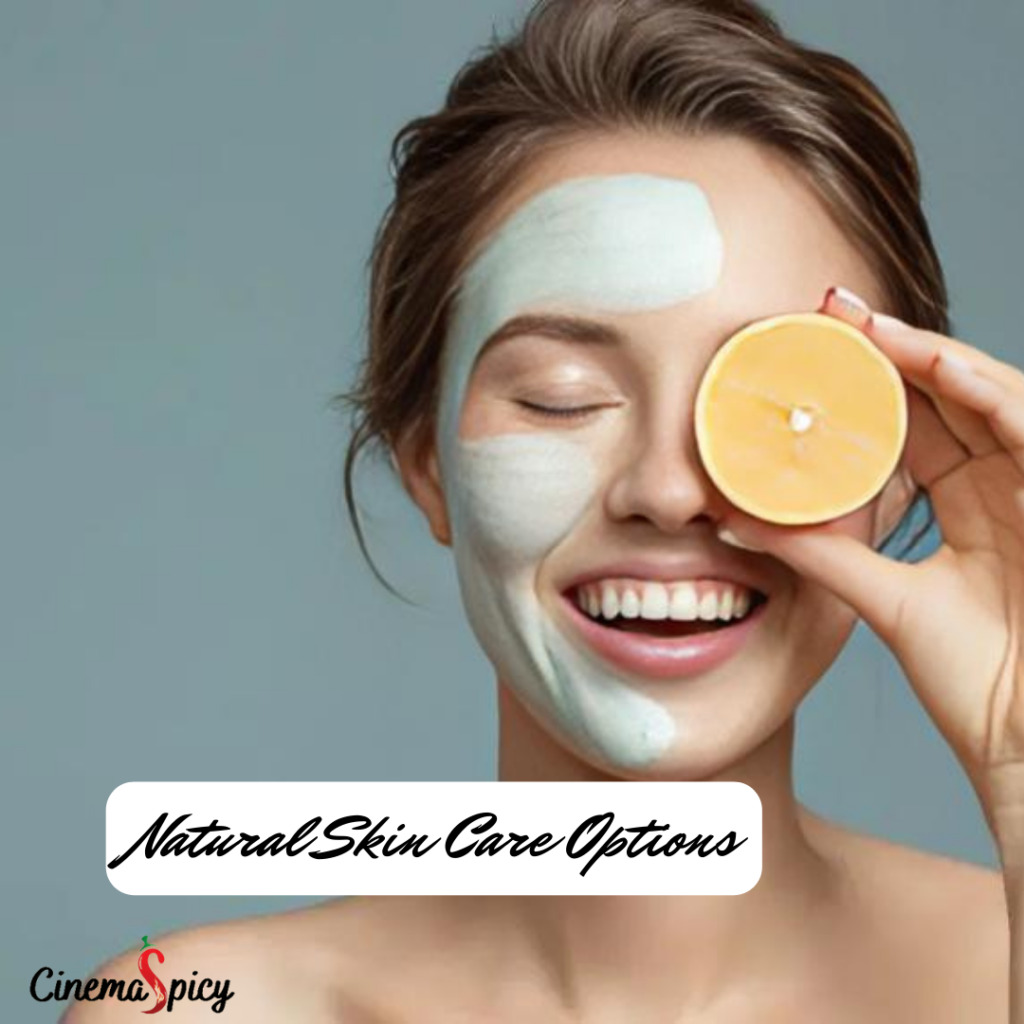
Benefits of Natural Ingredients
Natural ingredients are often gentler on the skin and free from harmful chemicals.
Common Natural Ingredients
Aloe Vera
Soothes and hydrates the skin.
Coconut Oil
Moisturizes and has antibacterial properties.
Tea Tree Oil
Reduces inflammation and fights acne-causing bacteria.
DIY Skin Care Recipes
Face Masks
Avocado and honey mask for hydration.
Oatmeal and yogurt mask for soothing.
Scrubs
Sugar and olive oil scrub for exfoliation.
Coffee and coconut oil scrub for invigorating the skin.
Toners
Green tea and apple cider vinegar toner for balancing.
Seasonal Skin Care

Adapting Your Routine for Different Seasons
Winter Skin Care
Focus on hydration and protection against cold, dry air.
Use heavier moisturizers and hydrating masks.
Summer Skin Care :Skin care routine in summer
Protect against sun damage and manage oil production.
Use lightweight, oil-free products and sunscreen.
Products for Seasonal Changes
Winter: CeraVe Moisturizing Cream, Aquaphor Healing Ointment
Summer: La Roche-Posay Anthelios Melt-in Milk Sunscreen SPF 100, Clinique Moisture Surge 72-Hour Auto-Replenishing Hydrator
Skin Care Myths and Facts
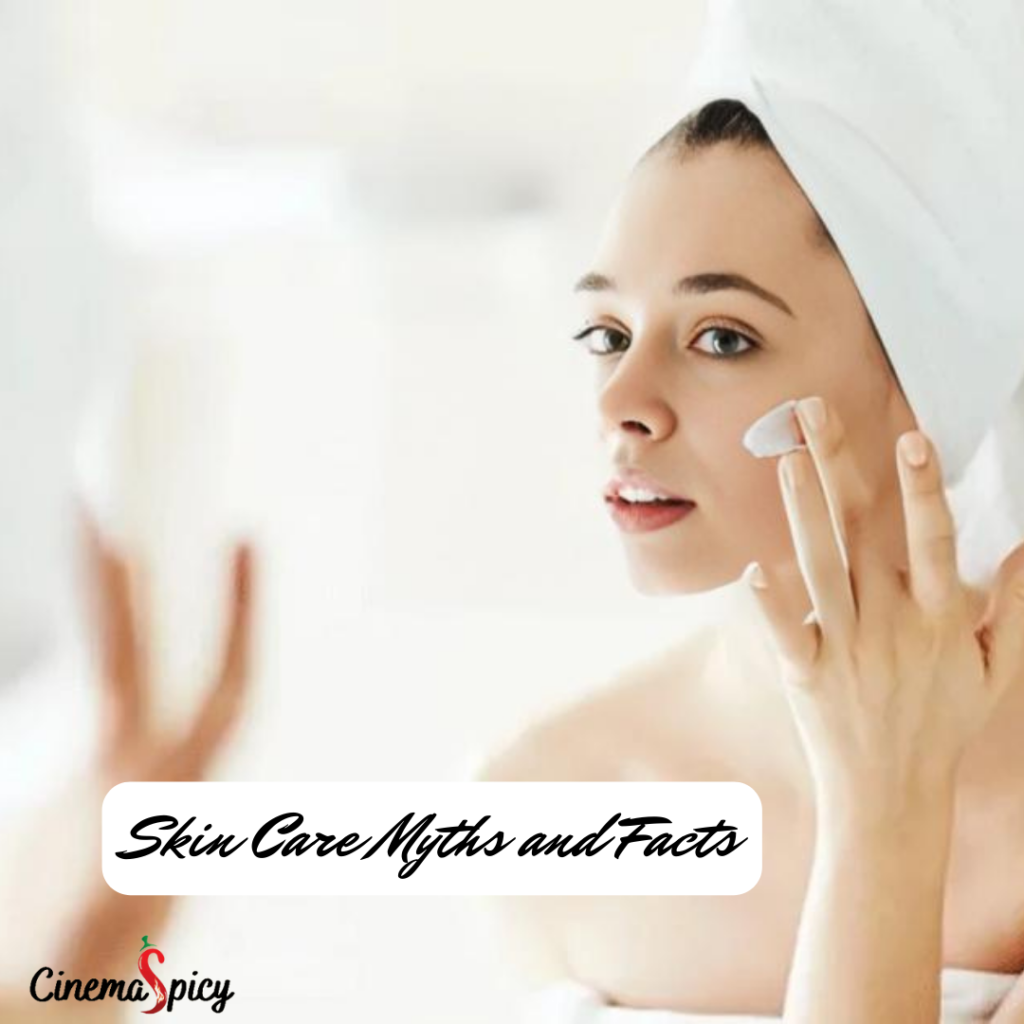
Common Skin Care Myths
Myth: You don’t need any type of sunscreen on cloudy days.
Myth: Expensive products are always better.
Myth: Natural ingredients are always safe.
Debunking Myths with Facts
Fact: UV rays can penetrate clouds, so sunscreen is necessary.
Fact: Effectiveness depends on ingredients, not price.
Fact: Some natural ingredients can cause reactions in sensitive skin.
Reliable Sources for Skin Care Information
Mayo Clinic
Expert Insights
Advice from Dermatologists

Dr. Sandra Lee (Dr. Pimple Popper): Consistency is key in skin care.
Dr. Anthony Youn: Avoid over-exfoliating and always wear sunscreen.
Dr. Shereene Idriss: Use products that cater to your specific skin needs.
Recommended Reading and Resources
“The Skincare Bible” by Dr. Anjali Mahto
“The Beauty of Dirty Skin” by Dr. Whitney Bowe
Skincare blogs and websites such as “Into The Gloss” and “The Skincare Edit”
FAQs
How often should I exfoliate?
Exfoliate 1-3 times per week, adjusting based on your skin type and the type of exfoliant you use.
What is the best sunscreen for oily skin?
Look for oil-free, non-comedogenic sunscreens like EltaMD UV Clear Broad-Spectrum SPF 46.
Can I use the same moisturizer day and night?
It’s best to use a lighter moisturizer during the day and a richer one at night.
How do I know if a product is right for my skin type?
Patch test new products and check for any reactions. Consult a dermatologist if unsure.
What should I do if I experience a reaction to a skin care product?
Stop using the product immediately and consult a dermatologist for advice.
Conclusion
Recap of Key Points
Establish a consistent daily skin care routine tailored to your skin type.
Use the right products and follow proper steps in both morning and evening routines.
Incorporate weekly practices like exfoliation and masking for additional benefits.
Consider lifestyle factors like hydration, diet, sleep, and stress management.
Adapt your routine for different seasons and debunk common skin care myths.
Encouragement to Establish a Routine
Developing and sticking to a skin care routine can lead to long-term benefits for your skin’s health and appearance. Start simple, and adjust as you learn more about your skin’s needs.
Final Tips for Glowing Skin
Always wear sunscreen during the day.
Stay hydrated and maintain a balanced diet.
Get enough sleep and manage stress effectively.


